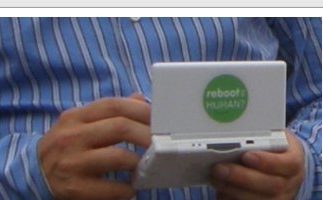Microsoft bends on OpenDocument | CNET News.com
Boy did I choke on this news. Once again I though that Microsoft had come to it’s senses and decided to embrace the OpenDocument Format. And this time it sounded really good, with the Danish Ministry of Research and Science praising Microsoft’s apparent 180.
But I suspected that it wasn’t that simple, to me it only sounded that a previously announced conversion tool, being developed by an ISV, who probably isn’t too true to the I (as in “Independent”), will be an open source project and released under a BSD license.
Instead of paying too much attention to the news reports, I turned to the excellent Groklaw, to hear what she had to say, and what an answer:
Is Microsoft clever, or what? Ditto with ODF. Here’s the choice it is trying to posit: You will have to download their ODF translator yourself and install it. Or, just stick with Microsoft’s one-stop competing solution that is built in to their software offering. Considering Microsoft’s monopoly position, and my mom’s and most governments’ typical technical skills, guess what Microsoft hopes moms and governments will choose? I see a plan in not building the ODF translator into Microsoft’s software. So truly clever. It looks open. But it’s marginalizing ODF. I think the press release might better have been titled, “Microsoft announces what it hopes will be its ODF killer.”
As Pamela Jones of Groklaw.net points out, the press-release by Microsoft, contains a lot of FUD:
Open XML and ODF were designed to meet very different customer requirements. By developing the bidirectional translation tools through an open source project, the technical decisions and tradeoffs necessary will be transparent to everyone — Open XML and ODF advocates alike. The Open XML formats are unique in their compatibility and fidelity to billions of Office documents, helping protect customers’ intellectual investments. Open XML formats are also distinguished by their approach to accessibility support for disabled workers, file performance and flexibility to empower organizations to access and integrate their own XML data with the documents they use every day. In contrast, ODF focuses on more limited requirements, is architected very differently and is now under review in OASIS subcommittees to fill key gaps such as spreadsheet formulas, macro support and support for accessibility options. As a result, certain compromises and customer disclosures will be a necessary part of translating between the two formats.
That might indeed be right, but why bother with translating, start moving to OpenOffice.org or the related project NeoOffice instead, that might also save you the huge investment in re-training, since Microsoft Office 2007 will be using a completely new user-interface, introducing the concept of “the ribbon”, a toolbar palette, that I find inspired by something I’ve seen in Mac OS X applications like GarageBand. When I confronted one of the leading members of the Microsoft Office team with that fact, her tounge-in-cheek response was “hush – don’t tell anyone” LOL!
I like innovation, but the UI in Microsoft Office 2007 is totally different from all previous releases, why?
OTOH who cares, since the introduction of Vista will require retraining as well.
If the companies are required to massively retrain their personnel, why not change platform?
Instead, I recommend that you take a look at the UNIX again. You’ll find that UNIX has put on a friendly face since XP was released, thanks to the work done by Apple and the KDE and GNOME projects, modern UNIX no longer is for geeks only, and guess what, KDE and GNOME running OpenOffice.org will look and feel more like plain-old Windows than Windows Vista, making you feel like “you’re still in Kansas”, that’s not the case if you follow Microsoft’s upgrade path.
“Hasta la Vista, Baby!”





